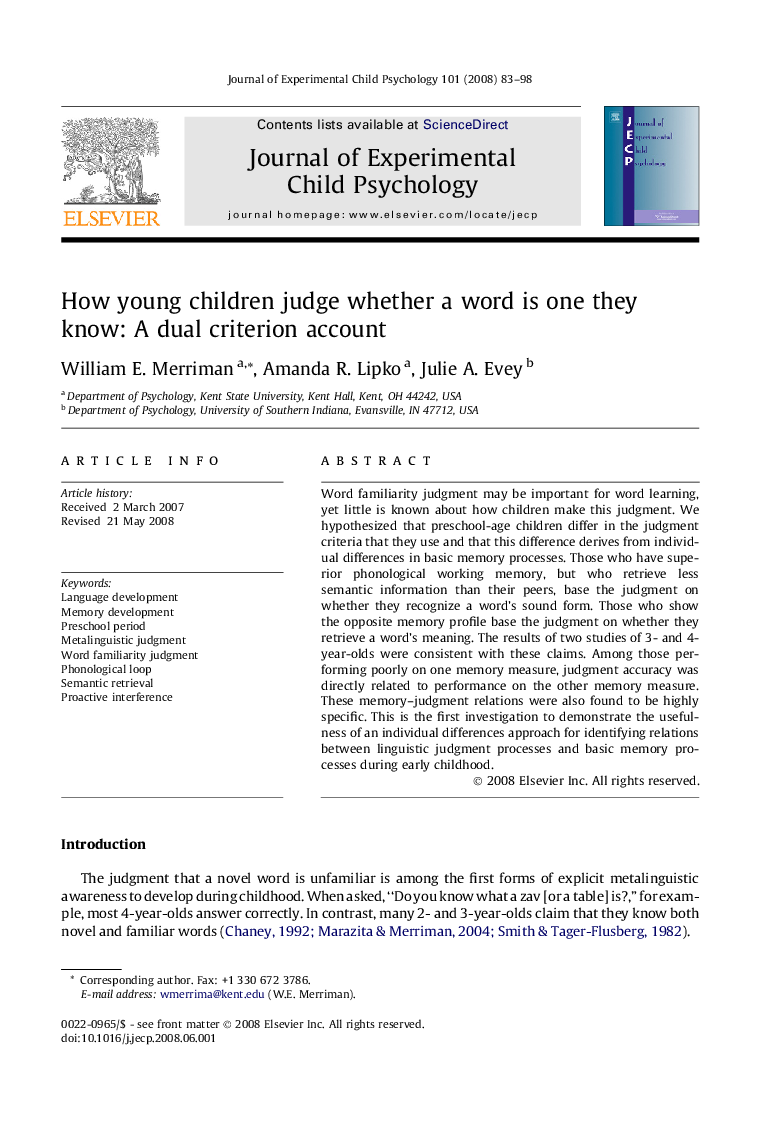| Article ID | Journal | Published Year | Pages | File Type |
|---|---|---|---|---|
| 918729 | Journal of Experimental Child Psychology | 2008 | 16 Pages |
Word familiarity judgment may be important for word learning, yet little is known about how children make this judgment. We hypothesized that preschool-age children differ in the judgment criteria that they use and that this difference derives from individual differences in basic memory processes. Those who have superior phonological working memory, but who retrieve less semantic information than their peers, base the judgment on whether they recognize a word’s sound form. Those who show the opposite memory profile base the judgment on whether they retrieve a word’s meaning. The results of two studies of 3- and 4-year-olds were consistent with these claims. Among those performing poorly on one memory measure, judgment accuracy was directly related to performance on the other memory measure. These memory–judgment relations were also found to be highly specific. This is the first investigation to demonstrate the usefulness of an individual differences approach for identifying relations between linguistic judgment processes and basic memory processes during early childhood.
